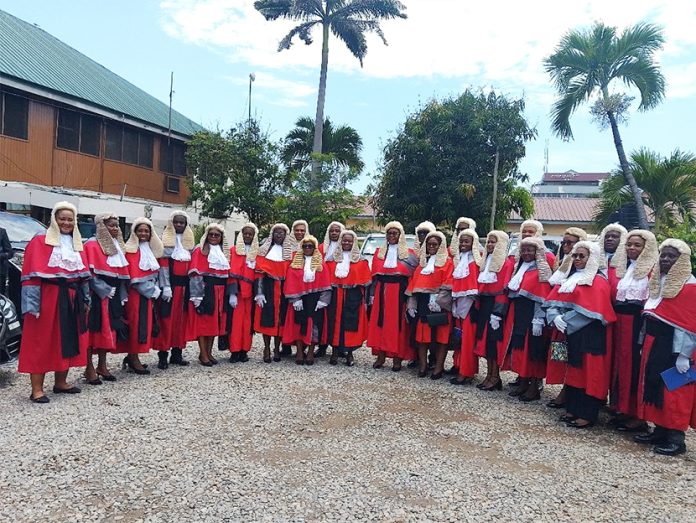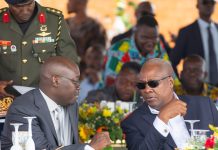Most Rev. Dr. Paul Kwabena Boafo, Presiding Bishop of The Methodist Church, Ghana, has called on Judges and Lawyers to prioritise accessibility to justice for all, emphasising that it should not be treated as a commodity for the privileged.
He delivered this message during the 67th Legal Year Church Service in Accra, themed “Building the Pillars of Justice Delivery through Leadership, Innovation and Technology.”
Dr. Boafo urged legal practitioners to approach their roles with empathy and ethical responsibility, stressing that justice must be available to everyone, regardless of their financial status.
“In a world where inequalities persist, we must be vigilant,” he said, underscoring the judiciary’s vital role in combating systemic injustices.
Reflecting on the moral imperative of justice, he reminded attendees of their responsibility toward the vulnerable, including women, orphans and those without means.
“Let justice flow like rivers,” he proclaimed, envisioning a society where every individual feels secure in their rights.
The Reverend Minister asserted that justice is not merely about winning cases, it is about ensuring fair treatment for all who seek help.
He called for unity within the legal community, stating “Let us support one another in our shared pursuit of justice.”
He noted that justice transcends the technical application of rules, impacting the collective morality and ethical commitments of society. Quoting Isaiah in the Holy Bible, he urged attendees to “learn to do good, seek justice, correct oppression, bring justice to the fatherless.”
Dr. Boafo also emphasised the importance of fair and equitable justice in the lead-up to the December 2024 elections.
He stated that justice fosters trust in institutions and reduces the potential for violence, highlighting the need for impartiality in the electoral process.
“You are major stakeholders in establishing a just electoral system,” he declared, calling on legal leaders to create an environment where laws are enforced with integrity, challenging systemic biases that marginalise vulnerable groups.
Furthermore, he linked justice to environmental sustainability, cautioning against the destructive practices associated with illegal mining or ‘galamsey.’
He described this as a form of environmental injustice, highlighting how the actions of powerful individuals harm both the environment and marginalised communities.
Dr. Boafo warned of the severe consequences of environmental degradation, including health issues such as cancer and deformities in children, due to contaminated water.
“What we are doing to the environment will have dire consequences for us,” he cautioned.
The service served as a poignant reminder of the judiciary’s essential role in upholding democratic values and protecting the rights of all citizens, particularly in a nation striving for greater equity and integrity in its legal system.









